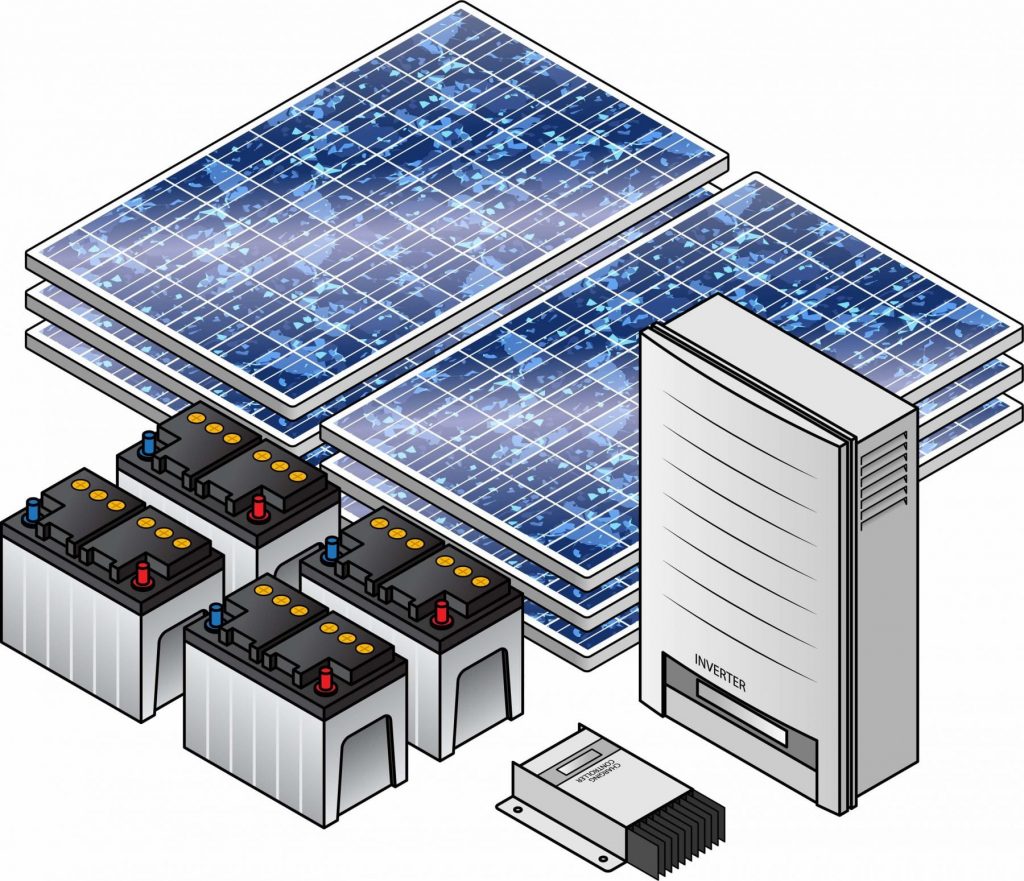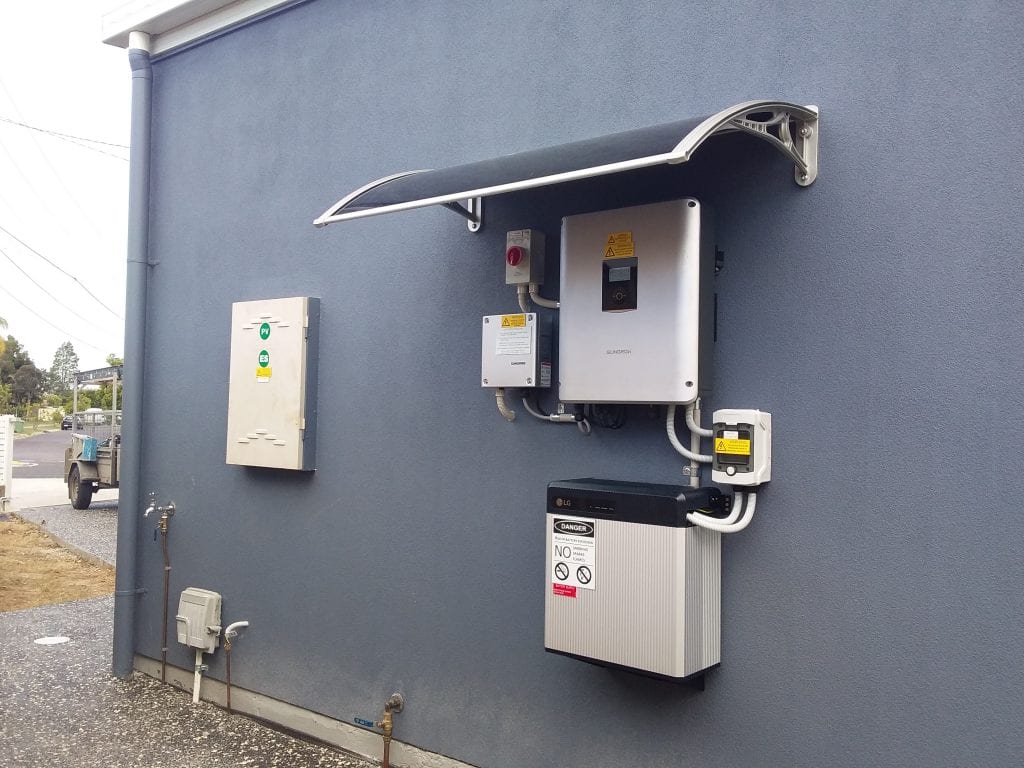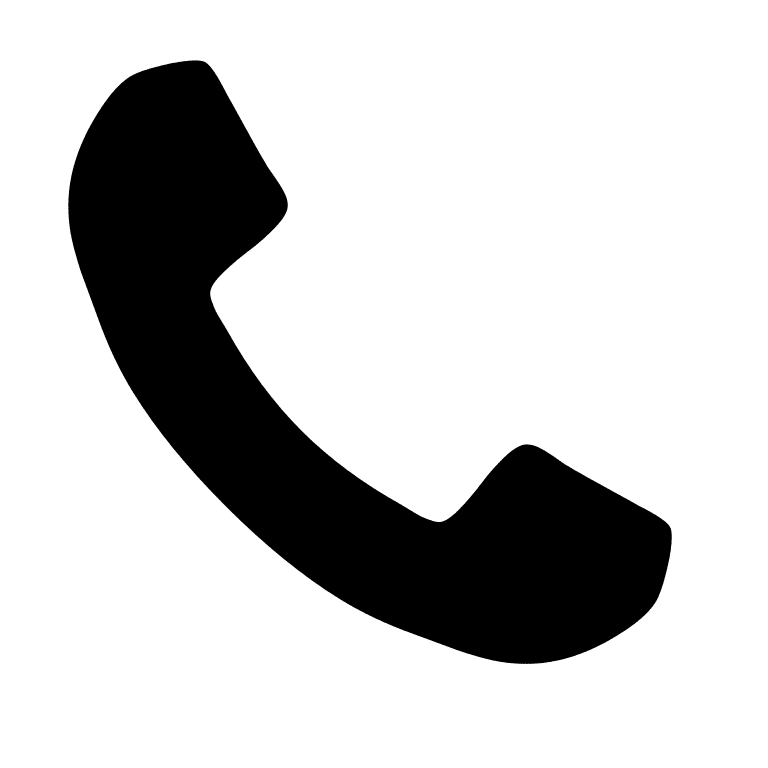Will solar work in a power outage?

If you suffer from frequent power cuts you may be exploring solar power to provide some electricity when the mains are down? A lot of consumers we talk to expect that when the power fails, their solar system will continue to produce energy to use in their homes or businesses.
However, when the mains power is down the linesmen repairing the faults have to be able to work safely and therefore no solar power can exported down the line at this time. What this basically means to you is that a standard grid connect system with no battery, will shut down completely during blackouts.
Additionally, the electricity from solar panels is not a consistent supply: it fluctuates throughout the daylight hours depending on how much sun is on your panels. When you have the grid “backing up” your solar power, you will always have a steady flow of electricity supply for any of your appliances. Essentially, you are always using a mix of grid power and solar power to run your home. When the grid power is cut off, the energy from your solar power will be too varied to provide consistent enough energy to power your home.
Instead, when the AC power is cut from the grid, your solar inverter will shut down completely. When the power returns from the grid, the inverter will power itself back up and restart as soon as there is power form the grid and from the solar panels.
This can be frustrating as you have solar panels on your roof that are capable of producing electricity (as long as the sun is shining) but you cannot access it for the reasons above.
How can I use my solar during a power outage?
As mentioned above your grid connect solar array will cut off when the main power shuts down. If you experience frequent power cuts and want a backup power supply, you may want to consider a battery bank. For more information on whether a battery bank is worth it for you, click here.
Having a battery bank will mean you can store and use solar energy after the sun sets and also if the mains power is cut. Please be careful here though as not all battery banks and inverters have the capability to supply emergency power in the case of a black out. Some systems will need additional equipment to provide emergency power and others will not have the option for this at all. In other cases, you will have emergency power available but only to selected circuits in the house. This means that only appliances connected to those chosen “critical” circuits will work.
You also need to be aware that even with battery back-up, the electricity you have available will depend on how charged your batteries are when the power cut happens. If, for example, your main power is cut off during a storm and the weather has been poor in the days leading up to the power cut, you may not have a lot of energy stored in your battery bank to use. Additionally, the discharge from a battery bank will vary from one product to another. This means relying on a battery back-up and trying to use multiple appliances at once may cause issues. If for example you try to use a high demand appliances like a microwave when you already have a significant base load drawing battery power, the maximum discharge available from your batteries may not be enough to cater for all of this at once.
All of this being said, if you do suffer from frequent power cuts then having a solar system with a battery back-up is a great idea. If it is designed properly and you are aware of the limitations, it can provide a great source of electricity for your important loads. Most people choose things like fridges, lights and power points as their critical loads for power cuts so you can still enjoy a good lifestyle when the power is down.
The most popular batteries we currently install are BYD, LG Chem and sonnen.
Image above shows a LG Chem battery installed with a Sungrow inverter and EPS (emergency power supply).
Summary
Grid connect solar power is a great way to save money on your energy bills. However, it does not solve the problem of power cuts as the solar will cut off when the mains power fails. Having a battery bank to provide emergency power is a great solution for this as long as your expectations are correct, and the system is designed properly for your needs.
Batteries for back-up power are not straightforward and you really need to discuss your needs with an expert before having a system designed and installed.
Here are some other links you may find handy:
Understand the basic of electricity
The difference between a good quality and bad quality install











